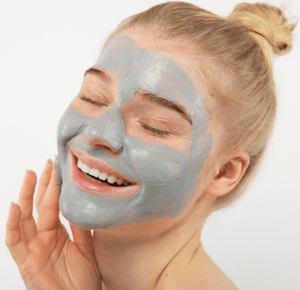
Face oils have become essential to skincare routines, but understanding how to use them effectively can take time and effort. Questions like “Will face oil make my skin too greasy?” or “Can face oils be used on oily skin?” are common concerns. Face oils can transform your skin’s appearance by providing hydration, protection, and a radiant glow without clogging pores or making your skin overly oily. This guide will walk you through everything you need about incorporating face oil into your skincare routine, from choosing the right oil for your skin type to applying it correctly. Whether you’re looking to boost hydration, balance oil production, or enhance your natural glow, face oils could be the solution you’ve been searching for. Let’s dive into how to make the most of this versatile skincare product.
What is Face Oil, and Why Should You Use It?
Face oils are concentrated formulations of plant-based oils, rich in essential fatty acids, antioxidants, and vitamins. They create a barrier on the skin to lock in moisture, promote cell regeneration, and protect against environmental stressors. For more on how specific ingredients help support skin health, Better Health Channel offers valuable insights into how skincare products affect the skin.
- Moisture Retention: Face oils are particularly effective at locking in moisture, making them excellent for dry skin.
- Antioxidant Protection: Many face oils contain antioxidants, which help shield the skin from free radicals and pollution.
- Balancing Benefits: Face oils can also help balance oil production, making them suitable even for oily or combination skin.
For an effective, high-quality option, consider Beauty In Us Face Oil, which provides a range of oils for various skin needs. From daily hydration to intensive nighttime care, there’s an option for everyone.
How to Choose the Right Face Oil for Your Skin Type
Choosing a face oil that matches your skin type is essential for achieving the best results. Here’s a breakdown of what to look for based on your skin type:
- Dry Skin: Rich oils such as avocado, jojoba, and rosehip offer deep hydration and are ideal for combating dry patches and dullness.
- Oily or Acne-Prone Skin: Lightweight oils like grapeseed, squalane, or tea tree help regulate oil production without clogging pores.
- Sensitive Skin: Gentle, soothing oils like chamomile or calendula reduce redness and irritation, making them perfect for sensitive skin types.
- Combination Skin: For balanced hydration, oils like argan or marula work well, delivering moisture without overwhelming the skin’s natural oils.
If you’re unsure, the Beauty In Us Face Oil Collection offers a variety tailored to different skin needs, from nourishing daytime oils to intensive recovery treatments.
Step-by-Step Guide to Applying Face Oil
Applying face oil can make a big difference in how your skin responds. Here’s a quick guide:
- Start with Clean Skin: Begin by cleansing to remove dirt, makeup, and impurities. The Australian Skin Clinics Blog advises starting with a clean canvas to allow face oils to penetrate effectively.
- Apply Serum (Optional): If you use serums, apply them before the face oil, as face oils seal in moisture and prevent active ingredients from evaporating.
- Use 2-3 Drops: Less is more with face oils. Apply only 2-3 drops for your entire face.
- Warm the Oil: Rub the oil between your palms to activate it before applying.
- Press, Don’t Rub: Press the oil onto your face and neck rather than rubbing. Pressing ensures better absorption without irritating the skin.
- Follow with Moisturizer: Layer a moisturizer over your face oil for added hydration.
By following these steps, you can ensure your face oil is fully absorbed, leaving your skin hydrated and balanced.
Benefits of Using Face Oil in Your Routine
Face oils offer a variety of benefits, from hydration to anti-aging properties. Here are some of the most notable advantages:
- Enhanced Hydration: Face oils lock in moisture, essential for plump, dewy skin.
- Improved Skin Texture: Oils like rosehip and marula contain essential fatty acids that help smooth skin texture.
- Radiant Glow: Regular face oil use can give your skin a healthy, natural glow.
- Anti-Aging Properties: Many face oils are rich in antioxidants, which help to reduce the appearance of fine lines and wrinkles.
For a deeper understanding of how to keep skin healthy with natural oils, Health Direct Australia provides scientifically backed information on skin and general wellness.
When to Use Face Oil in Your Skincare Routine
Knowing when to use face oil is as important as choosing the right product. Generally, face oils can be used both morning and night, but the type of oil may differ depending on your routine.
- In the Morning: Apply a lightweight face oil before your sunscreen. Oils like grapeseed or squalane are ideal for day use.
- In the Evening: For nighttime, consider using a richer, more nourishing oil like rosehip or avocado to provide intense hydration while you sleep.
Expert Tips for Getting the Most Out of Your Face Oil
Using face oil effectively involves a bit of experimentation and some expert tips. Here’s how to get the most out of your face oil:
- Mix with Foundation: Add a drop of face oil to your foundation for a dewy look.
- Store Properly: Keep your face oil in a cool, dry place to preserve its efficacy.
- Be Mindful of the Climate: A heavier oil may work best in dry climates, while a lighter oil is more suitable for humid conditions.
- Avoid Overdoing It: Too much oil can lead to clogged pores, so stick to a few drops.
Common Myths about Face Oils
There are several misconceptions about face oils; understanding them can help you make an informed decision.
- Myth 1: “Face oil is only for dry skin.” Face oils can be beneficial for all skin types.
- Myth 2: “Face oil clogs pores.” Non-comedogenic oils, such as squalane and jojoba, won’t clog pores.
- Myth 3: “More oil means better hydration.” Too much face oil can overwhelm the skin, so less is often more.
Conclusion:
Face oil is a versatile, nourishing product that delivers essential hydration, protection, and a radiant glow. Whether you have dry, oily, or sensitive skin, incorporating the right face oil into your skincare routine can elevate your results, making your complexion smoother, balanced, and more vibrant.






